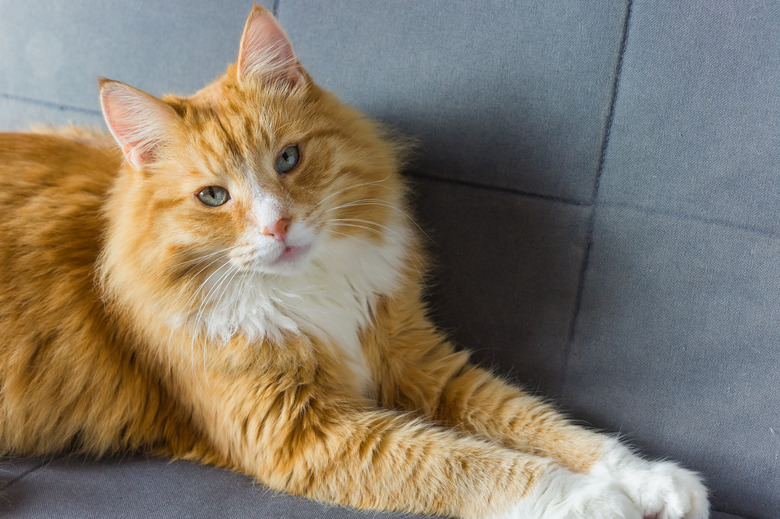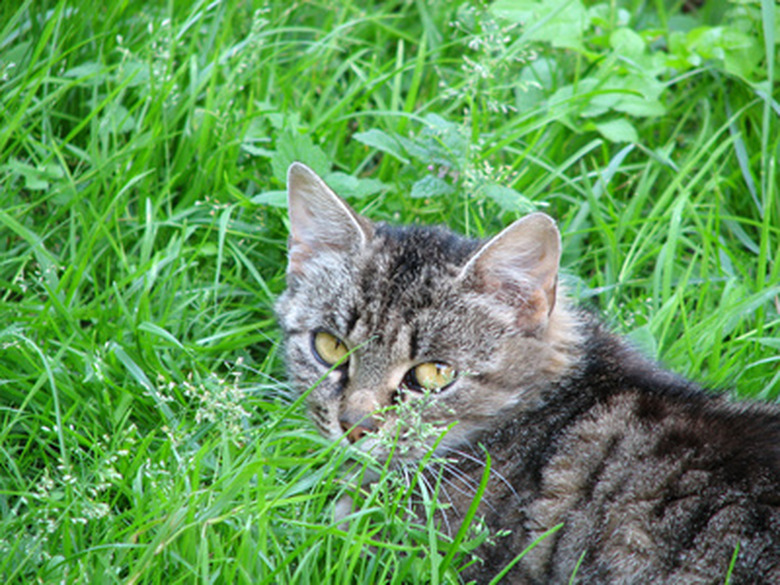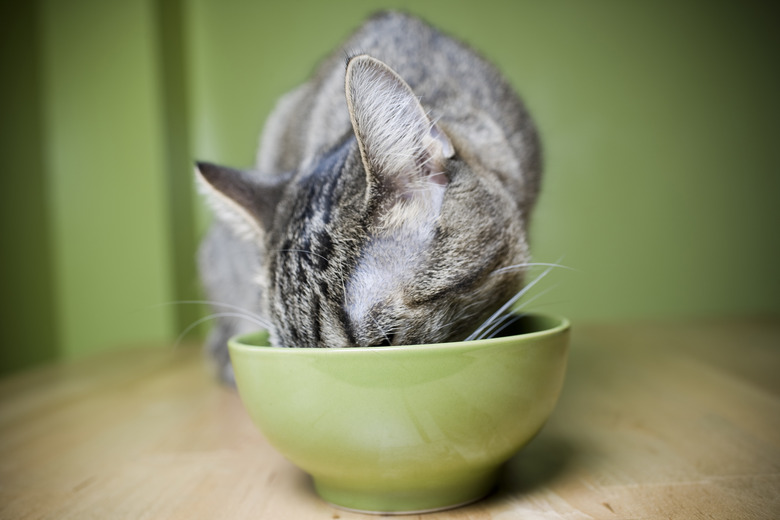Why Do Cats Eat Sunflower Seeds?
Cats sometimes seek out snacks beyond meals that are provided by their owners, such as grass or plants. Sunflower seeds, which can be found in bird food, are a favorite treat for some felines. Sunflower seeds are nontoxic, though you should contact your veterinarian and watch your cat if he consumes this treat since anything can have the potential to cause your pet stomach discomfort.
Also, if they're interested in this snack, your cat should only be eating the seed or kernel itself — not the shell — to avoid choking or scratching the throat. If you purchase it for your cat, make sure you buy natural, unseasoned sunflower seeds with no salt.
Nutritional value of sunflower seeds
Nutritional value of sunflower seeds
If you see your cat eating bird seed mix that contains sunflower seeds, she may be craving the nutrients found in the seeds. Sunflower seeds are high in many minerals that cats need in their diet, including vitamins E, B1, and B5, and minerals including iron, vitamin E, vitamin B1 and B6, manganese, magnesium, copper, phosphorous, folate, zinc, and selenium. They are also packed with protein. While this is a good snack, if your cat eats birdseed often, you may want to reevaluate her regular diet.
Though they are rich in many nutrients, sunflower seeds, grains, and plant-based protein cannot replace meat in a cat's diet. Felines are obligate carnivores, and they need meat for both the protein and taurine it provides.
A cat who craves and eats a lot of grass may need more fiber in her diet. Cats may also turn to sunflower seeds in this instance since they are rich in fiber. In addition to providing nutrients and energy, sunflower seeds can reduce body inflammation as well as boost the immune system to help keep your cat's body and digestive system healthy.
Plants to aid cat digestion
Plants to aid cat digestion
Most cats will eat grass and other green vegetation from time to time. Green vegetation provides necessary fiber and aids in the digestive process.
Other plants to which your cat may be drawn include catnip, valerian, cat thyme, licorice root, and lemongrass, all of which have health benefits for felines. Mint can also make a good feline snack but in moderation to avoid stomach discomfort.
Health risks can occur, however, if a cat seeks out green vegetation that is toxic, such as tiger lilies, ivy, or chrysanthemums. If your cat consumes one of these plants, contact your veterinarian immediately.
How cats choose food
How cats choose food
Cats use taste, texture, and smell in combination when deciding on food preferences. The taste can help them recognize foods that are healthy, and they are drawn to umami flavors rather than sweet tastes. This eating behavior is instinctual and is based on their individual nutritional needs.
Food preferences generally stay consistent throughout a cat's life, but sometimes, cats will gravitate toward different things if they are nutritionally deficient in a certain area. If you notice your cat eating birdseed, he may prefer the taste and smell of sunflower seeds because of the high protein content. When your cat gravitates toward snacks like sunflower seeds and plants, he could be missing some vital nutrients in his diet. Make sure the food your feline eats is giving him everything he needs. Look over the ingredient list before purchasing food to choose a balanced, healthy diet to keep him full and nutritionally balanced.
A protein source, like chicken or meat, should be the first ingredient in dry food and try to avoid foods with fillers or corn high on the list. You can learn more about the makeup of cat food based on the guaranteed analysis. If you are unsure of what to feed your cat, contact your veterinarian for suggestions.
References
- Vet Info: The Health Benefits of Cat Grass
- NCBI: Food Preferences in Cats: Effect of Dietary Composition and Intrinsic Variables on Diet Selection
- American Society for the Prevention of Cruelty to Animals: Sunflower
- HGTV: 7 Plants to Grow for Cats
- Cleveland Clinic: The 6 Best Seeds to Eat
- Excited Cats: Can Cats Eat Sunflower Seeds? What You Need to Know!
- VCA Hospitals: What's In My Cat's Food? Designer Diets, Grain-Free Diets


